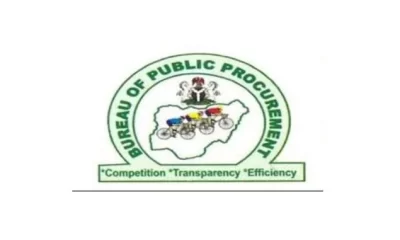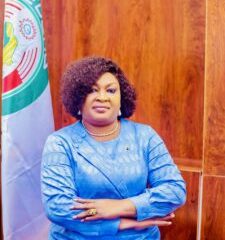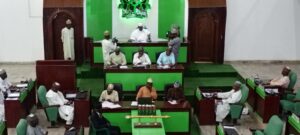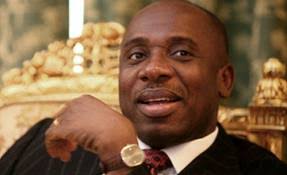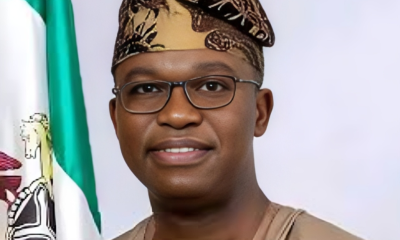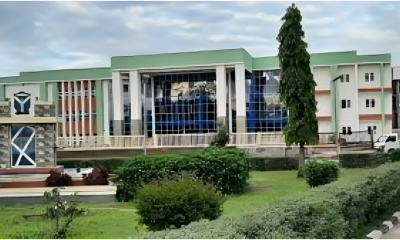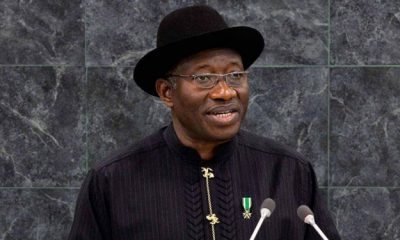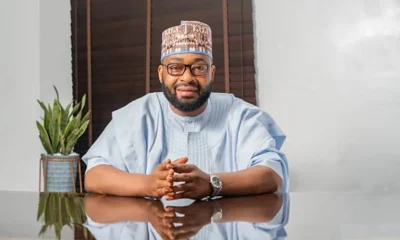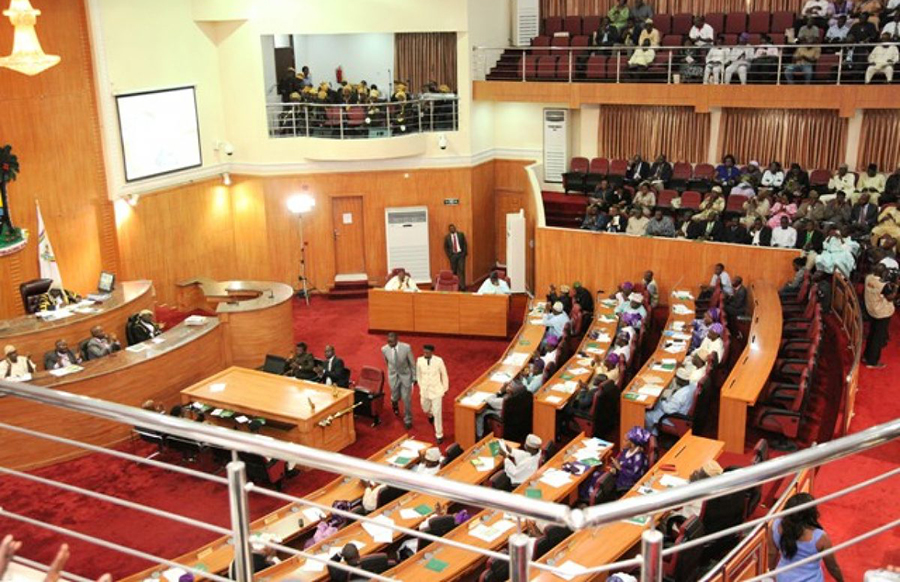COVER
Electoral Act Amendment: Why I Pushed for Direct Primaries – Gbajabiamila
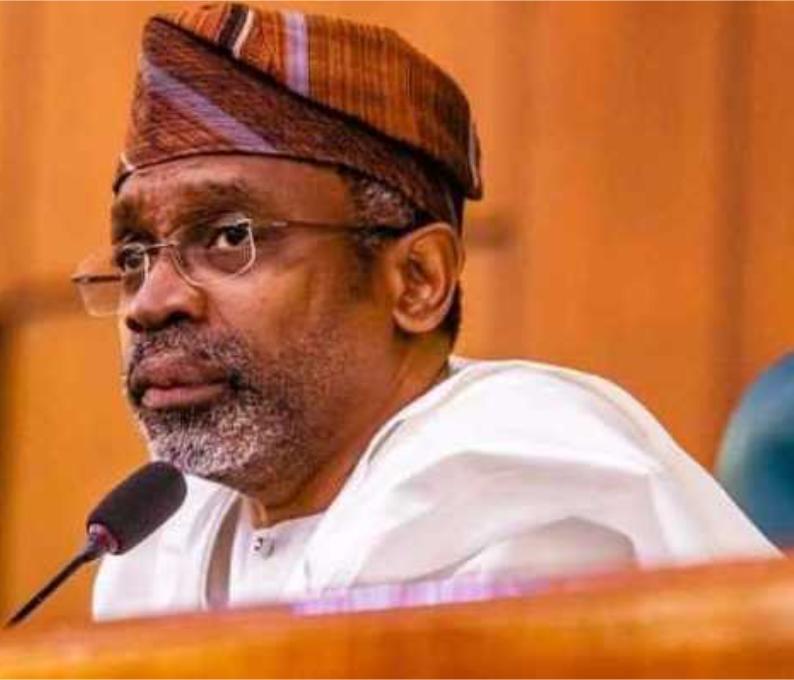
By Ubong Ukpong, Abuja
Speaker of the House of Representatives, Femi Gbajabiamila, yesterday, explained that he pushed for direct primary in the Electoral Act Amendment, as the only method through which political parties should elect candidates to stand for elections, saying that it would bring more accountability and adequate representation in governance.
Gbajabiamila said political office holders would not be restricted to pleasing a group of few people selected as delegates, but would work for the interest of the generality of their party members, and by extension the electorate.
Besides, the Speaker said he observed that many Nigerians, especially the youths, want to participate fully in the election of those that would represent them, right from the grassroots level, hence his resolve to champion direct primaries.
The Speaker, while hosting a delegation of the Nigerian youths on a thank-you visit for his role on direct primaries led by the Minister of Youth and Sports Development, Sunday Dare, said he preferred a situation where the political space is opened for all, including the youths, to participate fully.
This is even as Nigerian youths thanked the Speaker for single-handedly moving for the amendment in the Electoral Act to have direct primaries as the only method of electing parties’ candidates.
Gbajabiamila said some members of the political class may not be comfortable with the arrangement, but that the majority of the masses are in support of direct primaries, which he said would give them the opportunity of deciding who would represent them.
Advancing some of the reasons, Gbajabiamila said: “If I know that my return will depend on some few men, I may care about you. But if I know that my return will depend on my accountability and representation to the people, I will do the right thing.
“It is important for this generation to open the door of leadership to the next generation. We must allow every Nigerian to participate fully in the process of leadership. I, therefore, stand with Direct Primary.”
“That’s why I said at different fora that I’m for direct primaries. We have to do this for the sake of the institution.
“When you gather yourselves (as youths), chances are that you’ll win. Democracy is a government of the people. Democracy is not just a general election. It starts from the primaries.”
“Since the Not Too Young to Run became law, you’ve not taken advantage of that. The Act appears to be a paper tiger. The enabling environment to work for that Act isn’t capitalized on.”
Earlier, the Minister of Youths and Sports Development, Dare, said the visit was to thank the Speaker for moving the amendment for direct primaries, which he said would accommodate the Nigerian youth in the political space.
Dare, who led a delegation of about 20 youths, said: “I want to thank the Hon. Members and the House for the support they’ve been giving us for the past two years of our stewardship. I want to also thank you for your support for the youth of our country.
“Between 65% and 70% of our population are less than 25 years. So, we can’t ignore the youth. I want to plead on behalf of the Nigerian youth that you continue to support youth development. You should also expand the frontiers of youths inclusivity.”
Also, one of the youths’ representatives, Miss Patience N. Eze, who is the spokesperson of NYCN, thanked the Speaker for working for the Nigerian youths in different ways, including on the issue of the direct primaries.
COVER
CBEX Remains Banned in Nigeria, SEC Warns Investors

By Tony Obiechina, Abuja
The Securities and Exchange Commission (SEC) is insisting that CBEX (Crypto Bridge Exchange), operating under the corporate identity of ST Technologies International Ltd, also known as Smart Treasure/Super Technology, remains banned in Nigeria as it has not been registered by the Commission.
SEC in a statement yesterday advised the public to refrain from patronising or transacting any investment related business with the CBEX. The notice read: “The attention of the Securities and Exchange Commission has been drawn to media reports indicating that CBEX (Crypto Bridge Exchange), operating under the corporate identity of ST Technologies International Ltd, also known as Smart Treasure/Super Technology, has resumed operations across Nigeria.“According to the reports, CBEX promoters are demanding $200 from their subscribers with balances above $1,000, and $100 from those with less than $1000 balances before withdrawals can be processed”.The Commission stated “unequivocally that neither CBEX nor ST Technologies International Ltd (or Smart Treasure/Super Technology) is registered with the Commission or authorized to offer investment related services to the Nigerian public.“As a matter of fact, enforcement action has already been initiated against CBEX and its promoters following its previous unauthorized investment activities and the Commission is collaborating with relevant Law Enforcement Agencies to properly investigate CBEX/ST Technologies International Ltd and will take appropriate actions in line with the provisions of the Investments and Securities Act 2025.“The Nigerian public is accordingly advised to refrain from patronising or transacting with CBEX /ST Technologies International Ltd (Smart Treasure or Super Technology) as they risk losing their funds”.The SEC advised investors to verify the registration status of Investment platforms via the Commission’s dedicated portal: www.sec.gov.ng/cmos before transacting, adding that it remains committed to protecting investors and maintaining market integrity.COVER
Abducted Kogi Traditional Ruler Regains Freedom after 28 Days in Captivity

From Joseph Amedu, Lokoja
The Obalohun of Okoloke in Yagba West Local Government Area of Kogi, Oba Dada Ogunyanda has regained his freedom after spending 28 days in the custody of his abductors.The traditional ruler, who was kidnapped by gunmen on May 15, 2025, was released at midday of Tuesday, following pressure from combined security forces and local vigilance groups.
Community members trooped out in celebration of his return with cheers and warm embraces as he arrived back in the community on a motorbike. The Chairman Yagba West Council, Tosin Olokun, who confirmed the release of the royal father, said it was a victory for the people and a testament to the resilience and unity of the community in the face of adversity.Olokun said that the coordinated operations between the local hunters, vigilance groups and the military played a key role in mounting sustained pressure on the abductors leading to the release of the traditional ruler without any harm.“We are grateful to God Almighty and all security stakeholders who worked tirelessly to secure Kabiyesi’s safe return. This is a day of joy for Yagba West.“Throughout the 28 days of his captivity, we maintained close engagement with the affected community, and we never relented in our search.“The message was clear, criminality will not thrive in Yagba West,” the chairman said.COVER
June 12: Tinubu Cancels Broadcast, Addresses N’Assembly Joint Session Today
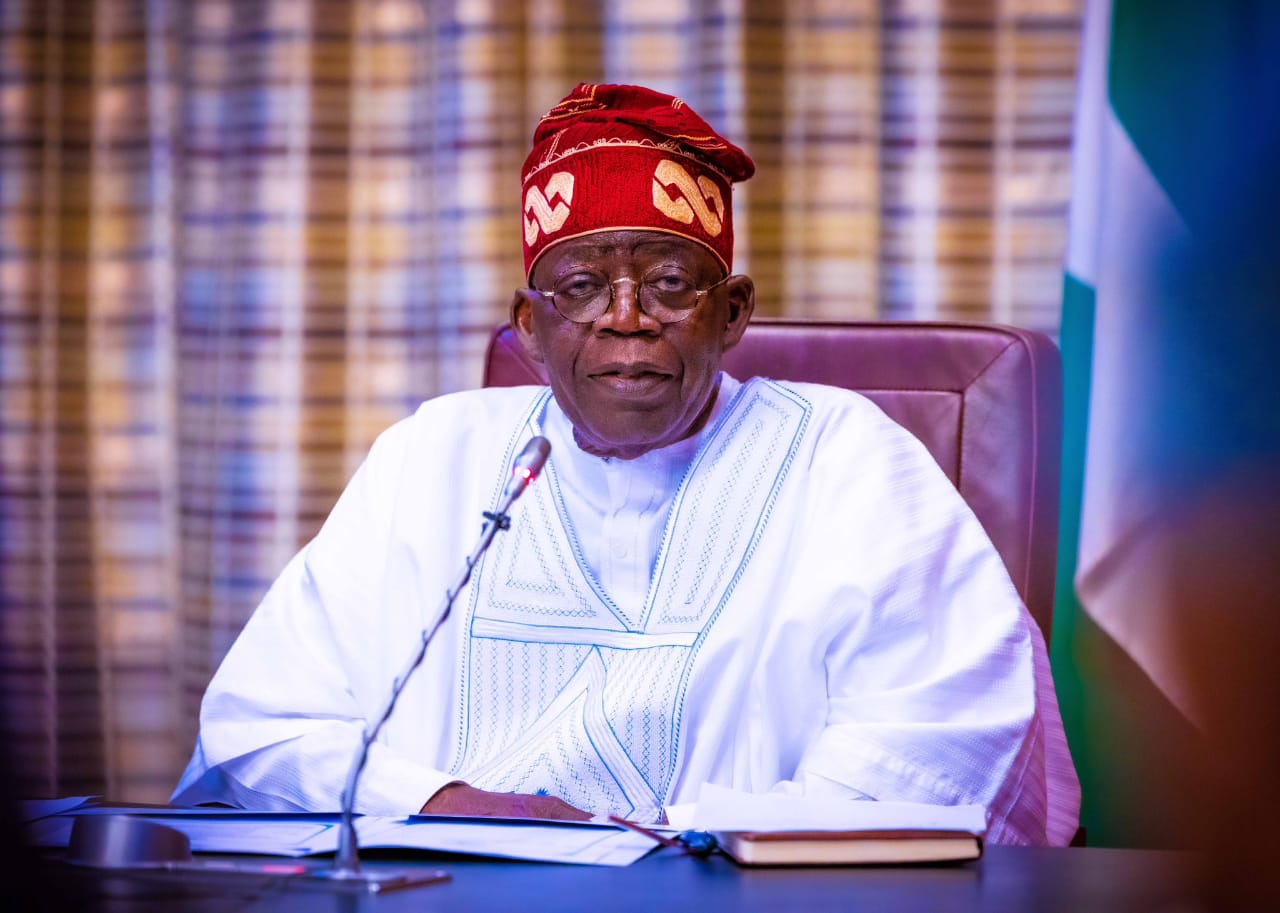
By David Torough, Abuja
Expectations of many Nigerians who may be keenly waiting to hear the message of hope from President Bola Tinubu have been dashed as the previously scheduled nationwide broadcast for Nigeria’s 26th Democracy Day anniversary has been cancelled and will instead deliver his address during a joint session of the National Assembly today.
In an official statement by the Director of Information and Public Relations, Segun Imohiosen, the cancellation is due to President Bola Tinubu’s confirmed attendance at the Joint Session of the National Assembly, where he will deliver his Democracy Day address instead. “All other plans remain unchanged as previously announced,” the statement noted.The theme of this year’s Democracy Day celebration is “Consolidating on the Gains of Nigeria’s Democracy: Necessity of Enduring Reforms.” The theme reflects the administration’s emphasis on building upon democratic milestones through institutional and structural reforms.Tinubu’s address from the National Assembly is expected to highlight the government’s reform agenda, the importance of national unity and the collective responsibility of citizens and institutions in sustaining democratic governance.This year marks 26 years since Nigeria’s return to democratic rule in 1999. June 12 was designated as Democracy Day in honor of the widely acclaimed 1993 presidential election, considered one of the freest and fairest in the nation’s history.Democracy Declining Under APC – PDPThe Peoples Democratic Party (PDP) has raised the alarm over what it describes as a steady decline in Nigeria’s democracy under the leadership of President Bola Tinubu and the ruling All Progressives Congress (APC).The party’s critique was made during separate chats in Abuja yesterday, ahead of the June 12 Democracy Day celebration.Several PDP leaders, including; Deputy National Youth Leader, Timothy Osadolor and National Publicity Secretary, Debo Ologunagba voiced their concerns, drawing parallels between the current administration and the authoritarian tendencies of past military regimes.Osadolor, in his remarks, highlighted the irony of Tinubu’s current governance style, given his historical role as a frontline pro-democracy activist during the NADECO era.“President Tinubu was one of the early frontliners among the NADECO people who fought for June 12th. That was the democracy we are currently enjoying today,” he said.However, Osadolor questioned whether Tinubu has now become a “replica or a more complex version” of the military governments he once opposed.Osadolor also expressed concern over the President’s apparent detachment from public opinion, noting that Tinubu has openly admitted he avoids the media and social media because, in his words, some people were “abusing the hell out of” him.He pointed to the administration’s alleged disregard for court orders, the weaponisation of state institutions, and the erosion of local government autonomy as evidence of democratic backsliding.“We have seen brazen attempts to stifle democratic tendencies in the land, unlike during military rule. Court orders are flagrantly disobeyed and discarded,” Osadolor stated.He specifically cited the situation in Rivers State; where a sole administrator appointed by the President went on to appoint sole administrators in local governments, despite multiple court rulings against such actions.“I wonder who is now speaking to him, the eyes through which he perceives and the ears through which he listens,” he said, suggesting that the President may be shielded from the realities of governance by his inner circle.The party leader urged Tinubu to reflect on his legacy.Meanwhile, Debo Ologunagba, PDP National Publicity Secretary, echoed similar concerns but opted to issue a formal statement later.When pressed for comment, he said, “Are we practising democracy now? Is this democracy, cronyism, or individualism? We’ll issue a statement. Don’t worry about that.”The PDP’s critique comes at a time when Nigeria’s democratic institutions face mounting challenges, including allegations of executive overreach, judicial interference, and the marginalisation of local governance structures.The party’s leadership emphasised the need for urgent corrective measures to safeguard the nation’s democratic ideals.Electoral Fraud, Power Grab a Mockery of Nigeria’s Democracy – CUPPThe Coalition of United Political Parties (CUPP), has expressed sadness that the glory of the democratic gains made by Nigerians who troped enmass to vote in the June 12, 1993 presidential election has been eclipsed by electoral fraud and power grab by beneficiaries of the sacrifices made by citizens before, during and after that historic event.National Secretary of the CUPP, Chief Peter Ameh, said this in response to a question by Vanguard on the state of Nigeria’s democracy since the June 12, 1993, election.He explained that as Nigerians commemorate the anniversary of the historic presidential election, which was judged free, fair and credible by local and international observers, he and fellow democrats are full of lamentations about what he described as the fading glory of the sacred day.Ameh said, “The annulled election, widely regarded as a true expression of the people’s will, was suppressed by a military regime, yet its spirit inspired a relentless pursuit of democracy.“Today, however, that spirit is being suffocated by the very leaders entrusted to uphold it, through rampant corruption, political violence, and authoritarian tendencies that mock the sacrifices of June 12. “The essence of June 12 lies in the people’s yearning for a free, fair, and inclusive democratic system. Yet, over the years, this vision has been eroded by the actions of politicians who prioritize power over principle.“Persistent corruption has drained public trust, with elected officials often seen as serving personal interests rather than the common good.“Political violence, intimidation, and election rigging—evident in the unresolved glitches of the 2023 elections, for which INEC has yet to provide a transparent account—have further delegitimize the democratic process. These practices are a direct affront to the ideals of June 12, reducing democracy to a hollow ritual.“Even more alarming are the authoritarian tactics employed by those in power. The suspension of the democratically elected Governor and House of Assembly members in Rivers State is a glaring betrayal of the June 12 struggle, signaling a dangerous slide toward autocracy.“Equally troubling is the appointment of partisan actors as members of the electoral commission, a move that undermines the impartiality essential to free and fair elections.“Such actions dishonor the sacrifices of those who fought for Nigeria’s democracy and erode the principles of accountability and citizen participation.“The spirit of June 12 is a clarion call for a government that reflects the will of the people—one rooted in transparency, inclusivity, and justice.“Yet, for many Nigerians, this ideal feels elusive, overshadowed by disillusionment with a political landscape marred by greed and impunity.“As a nation, we cannot allow the legacy of June 12 to be reduced to mere symbolism while those in power trample on the very democratic values it represents.“CUPP calls for urgent action to restore the glory of June 12. We demand an end to political violence and electoral manipulation, starting with a full and transparent account of the 2023 election irregularities.“We condemn authoritarian practices and call for the reinstatement of democratic processes in Rivers State. The electoral commission must be purged of partisan appointments to ensure its independence.“Above all, we urge Nigerians to reclaim their democratic power through active participation, holding leaders accountable, and demanding a government that serves the people, not the powerful.“June 12 is not just a date—it is a reminder of our collective resolve to build a Nigeria where the will of the people reigns supreme. Let us honor its legacy by rejecting corruption, violence, and authoritarianism, and by recommitting to the pursuit of a truly democratic nation. The struggle for June 12 continues, and CUPP stands with Nigerians in this fight for justice and accountability.”
